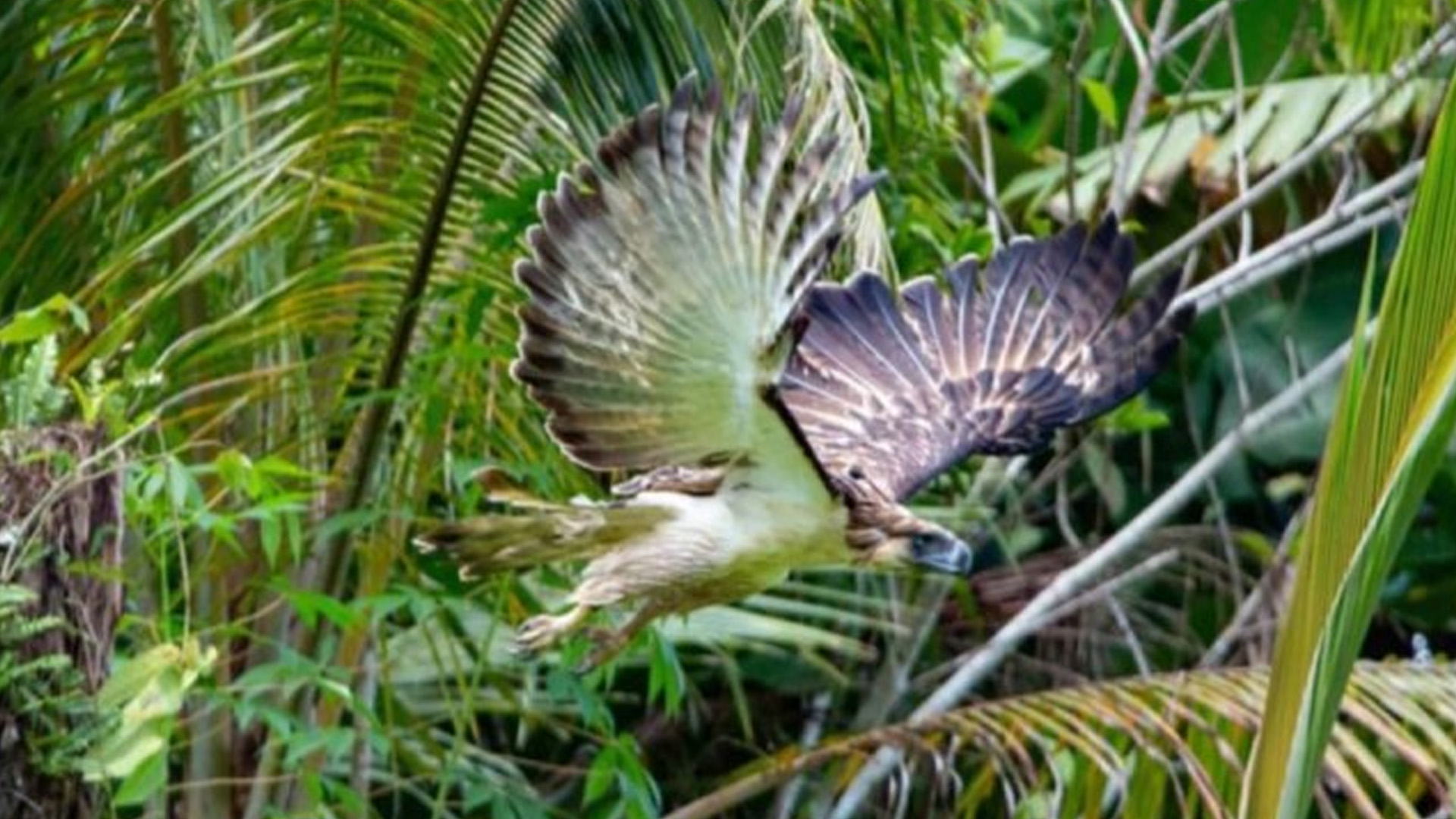The Department of Environment and Natural Resources (DENR) has said the released pair of Philippine Eagles in the forest of Burauen, Leyte, are being closely monitored to ensure their survival and protection.
Based on real-time monitoring, the two eagles “Carlito” and “Uswag” are exploring the forest of Burauen town, three weeks after their release on June 28, said DENR Regional Executive Director Lormelyn Claudio.
“They are closely monitored since they are fitted with backpack transmitters. It helps us monitor their location,” Claudio told reporters during the “Kapihan sa Bagong Pilipinas” press briefing on Tuesday.
Through remote tracking, the DENR and the Philippine Eagle Foundation (PEF) follow the trail of the eagles, provide food and supplements when needed, and undertake education campaigns in communities.
Aside from a team from the Philippine Eagle Foundation (PEF), the DENR on Wednesday said that deployed forest guards and personnel from the nearby Protected Area Management Board office would join the conservation efforts.
“We are in coordination with community leaders. There have been training held for them on how to take care of eagles since we want the communities to be involved in this Philippine Eagle Repopulation Program,” Claudio added.
The two eagles, named Carlito and Uswag, were released around noon on June 28 in the outskirts of upland Kagnana village, which is considered their new safe haven.
The PEF said the pioneering raptor Uswag (male) was rescued on Mt. Apo in Davao City in 2023, while Carlito (female) was found in Trento, Agusan del Sur, and rehabilitated in 2022.
Kagbana village is the new release site for rescued eagles in the Visayas.
Located 37 kilometers away from the town center, the village is the most remote community in Leyte province. It has a population of nearly 400 people, including 58 members of the Mamanwa Tribe.
The Philippine Eagle is one of the rarest eagles in the world and one of the largest and most powerful among forest raptors.
They are also listed as critically endangered by the International Union for Conservation of Nature, with an estimated number of only 400 pairs left in the wild. (PNA)







